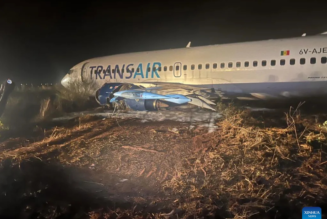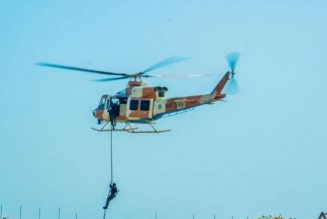
Oyo State governor, Mr Seyi Makinde, has identified the imperativeness of tweaking the curriculum of secondary schools towards the teaching of agriculture as a business.
Makinde made this call at the launch of Start Them Early Programme (STEP) in Oyo State and the inauguration of STEP Agribusiness Facility at Fasola Grammar School, Oyo, on Thursday.
He noted that such teaching of agriculture as a business right from primary and secondary schools will enable people to, from young ages, possess practical entrepreneurial training and knowledge of modern agriculture practice.
Speaking further, he stressed that the teaching of agribusiness, from the cradle, will help diversify the typical picture in the minds of young people of an older man or woman back bent, tilling the soil with a hoe or attacking weeds with a cutlass.
Makinde emphasised that his government was open to ideas that will change the perception of the young ones towards agriculture.
“In the 80s to early 90s, we had the Young Farmer’s Club in schools. There was also the School to Land Programme in Rivers State. These programmes helped to steer the interest of some youths towards agriculture, and I must say that some people who have grown to become farmers today developed their interest in agriculture because of those initiatives.
“So, it is time to borrow a leaf out of the 80s book and bring back this initiative.
“This pilot programme will expose young minds to careers in agriculture that they never knew existed, and they will be given the needed direction to pursue these careers.
“I am particularly thrilled because they will not only be learning agriculture in the classroom. Positive peer pressure, in the form of social clubs, will be used to reinforce their classroom training, and then, they will get practical entrepreneurial training in the business of agriculture.
“The truth is, what we set before young people as goals, is what they will pursue. When our parents told us to be doctors, lawyers, engineers and architects, we followed that path.
“The school system also emphasised those professions. It is now time to diversify. It is time to start teaching our children, the business of agriculture,” Makinde said.
While lauding the International Institute of Tropical Agriculture (IITA) for the STEP initiative, Makinde declared that the state government was poised to site such agribusiness facilities across the six geopolitical zones of the state.
“I will provide a small budget within the 2020 budget of Oyo state for IITA and our Ministry of Education, as well as Oyo State Agribusiness Development Agency (OYSADA) to locate facilities like this within the other six geopolitical zones in the state.
“We have a Memorandum of Understanding with IITA to do the survey. We will finish the survey this year, and if we move really fast, we will be able to do one or two before this year runs out.
“I will take ownership of this project, the rest of the schools will come in under the 2021 budget. This project starting in Fasola Grammar School will be extended to other areas of Oyo state. Through this project, we will have a new generation of agropreneurs in Oyo State,” Makinde added.
Giving an overview, Coordinator, STEP, Mr Adedayo Adefioye, said the programme was to enable young people to develop a keen interest in agriculture and promote agriculture as a business in Oyo state.
He said young people will be encouraged to embrace improved modern farming technologies rather than subsistence practice of farming.
In his remarks, Coordinator, Technologies for African Agricultural Transformation Programme (TAAT), Dr Chrusantus Akem, urged the state government to prioritise the security of the Fasola facility.
According to Akem, the way to go, in today’s world, is for agribusiness to be embedded in the school curriculum.
Students of Fasola Grammar School such as Folarin Motunrayo and Samuel Joshua avowed that with training under the STEP, they had been enriched with knowledge of the use of modern equipment that will make the practice of agriculture better and faster.
With their knowledge of mechanization, greenhouse, ICT, biogas, agribusiness, the students noted that they were assured of sustainable living by being in agriculture.










